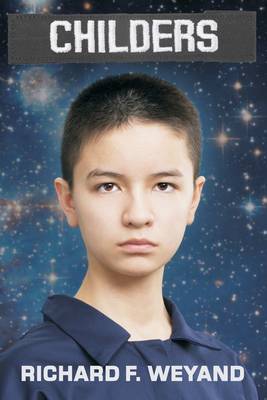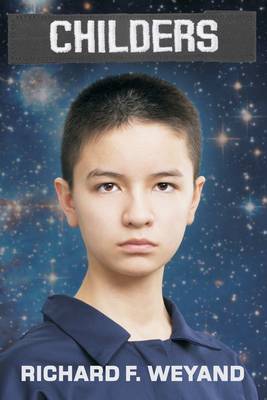
- Afhalen na 1 uur in een winkel met voorraad
- Gratis thuislevering in België vanaf € 30
- Ruim aanbod met 7 miljoen producten
- Afhalen na 1 uur in een winkel met voorraad
- Gratis thuislevering in België vanaf € 30
- Ruim aanbod met 7 miljoen producten
Zoeken
€ 24,45
+ 48 punten
Uitvoering
Omschrijving
Jan Childers grew up orphaned in the slums of decaying post-diaspora Earth. She was raped, beaten, and starved. Yet she survived. She escaped to become a citizen of the Commonwealth of Free Planets, and joined the Commonwealth Space Force. Over the next twenty years, she turned the CSF into the most powerful and dangerous space fleet that history had ever known. Jan Childers rose to lead that fleet against freedom's most deadly enemy -- Earth itself. INTERVIEW WITH RICH WEYAND How did you write Childers? I had no idea where Childers was going when I started. I didn't plot it out in advance, it just sort of grew. It wrote very fast. I had the initial 60,000 words of the story arc in a month. Then I went back and filled in another 30,000 words in a couple of weeks. Your main character is female. Is that an unusual choice in science fiction? I don't think so. I'm really comfortable writing strong women. I've known a bunch of them, and have lived with one for over thirty years. And there are a number of strong women in science fiction, including Honor Harrington, Kylara Vatta, Cordelia Naismith, Maureen Johnson Smith, just to name a few. Women think differently than men, often with different priorities, and you have to take that into account, but I don't have any problem with that. Your main character suffers from PTSD for much of the book. Was that difficult to write? No, but I had to be careful to get it right. The signs are pretty subtle, because I'm not writing close third person. I'm an omniscient third person writer. So I'm not in the character's head, where it would be easier for the reader to spot. An early reader, who is a PTSD counselor, saw the signs very clearly, and said he was hoping she got help before it all came apart for her. He was relieved when he got to the part of the book where she started counseling. Your technology choices are interesting. No warp drive, no blasters, no artificial gravity. My degrees are in physics. When something new is discovered in physics, all the old things still work the same. I didn't want to violate relativity and have faster-than-light drive in normal space. I postulated the existence of a hyperspace, which we simply haven't discovered yet, in which all the points are closer together, so you can move slower than light in hyperspace and yet come back into normal space more than light-speed distance away. That's about the only big new thing in the Childers universe. Does your politics get into your writing? No. I'm a libertarian, so liberals call me a conservative and conservatives call me a liberal. In Childers, the only politics is that the Commonwealth of Free Planets, a loose confederation of planets with good civil rights, is seen as superior to the tyrannies and plutarchies on other planets, including Earth. That's a pretty easy call, no matter what your politics. Where does your writing fit into science fiction writ large? Childers is somewhere between hard science fiction and space opera. It's not pure hard science fiction, because I'm using hyperspace, but it's not pure space opera, either. There are no blasters, artificial gravity, light sabers, or mystical forces. I grew up on Robert Heinlein, Isaac Asimov, and Andre Norton, and they are big influences. My primary influences among living writers are probably David Weber, Elizabeth Moon, and Lois Bujold. Readers of those authors should feel right at home in the Childers universe. What's next? The double volume Childers: Absurd Proposals finishes the Childers trilogy. That's released. Galactic Mail: Revolution is a sequel set 175 years or so after the close of the Childers trilogy. That's released. I'm now working on a prequel to the Childers trilogy, set 150 years earlier, which is the story of the founding of the Commonwealth of Free Planets.
Specificaties
Betrokkenen
- Auteur(s):
- Uitgeverij:
Inhoud
- Aantal bladzijden:
- 302
- Taal:
- Engels
- Reeks:
- Reeksnummer:
- nr. 1
Eigenschappen
- Productcode (EAN):
- 9780997070965
- Verschijningsdatum:
- 30/08/2017
- Uitvoering:
- Paperback
- Formaat:
- Trade paperback (VS)
- Afmetingen:
- 152 mm x 229 mm
- Gewicht:
- 403 g

Alleen bij Standaard Boekhandel
+ 48 punten op je klantenkaart van Standaard Boekhandel
Beoordelingen
We publiceren alleen reviews die voldoen aan de voorwaarden voor reviews. Bekijk onze voorwaarden voor reviews.











